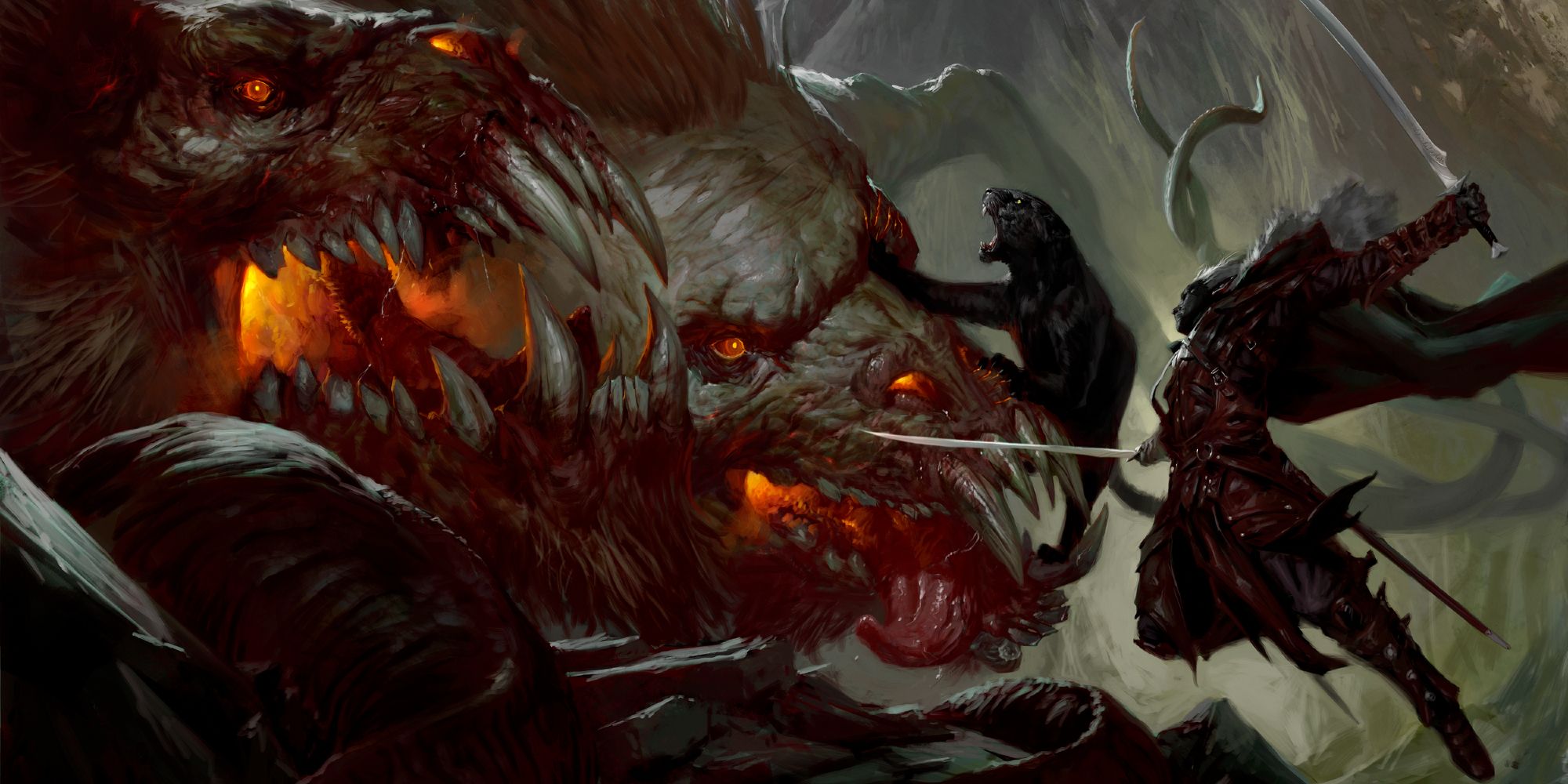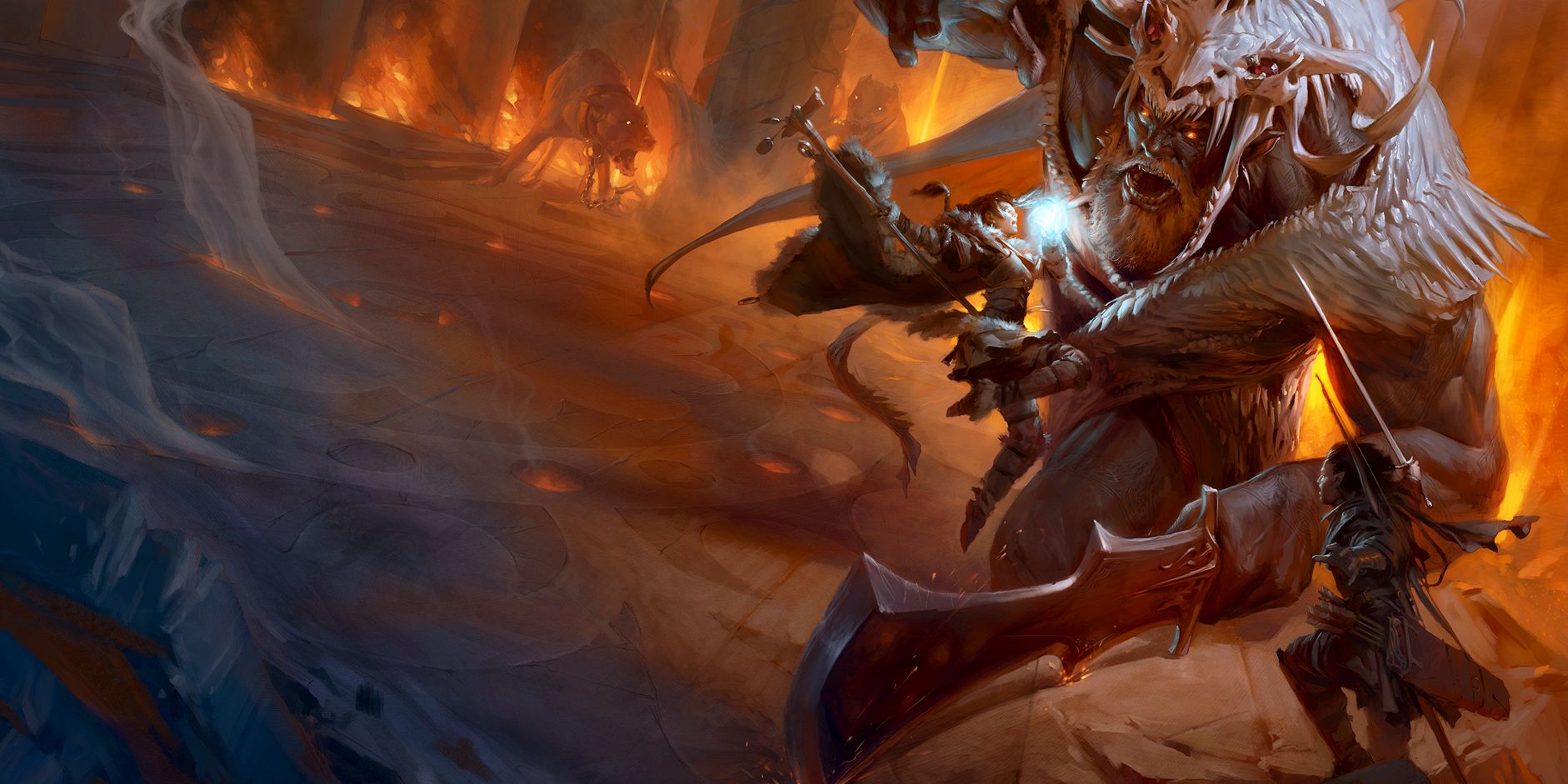Dungeons & Dragons used to have over a dozen new novels published each year. But while it still has published fiction, what little that remains feels like the dwindling remains of a once-great era. Between 2016 and 2020, just three official D&D novels were published: Timeless, Boundless and Relentless, all written by the prolific R.A. Salvatore. With the exception of that singular series, it appears Wizards of the Coast has lost its appetite for novels that accompany its most popular product.
All of this comes at a time where all aspects of the game should be at their zenith -- D&D has reached all-time high, knocking it out of the park with its Fifth Edition and approaching mainstream popularity with the success of popular actual play series like Critical Role and The Adventure Zone.
Of course, this begs an interesting question: does the game need companion novels? D&D is about the stories players weave with their friends rather than sticking to established lore. Many Dungeon Masters eschew the setting of the Forgotten Realms entirely, choosing to create their own fantasy worlds as the backdrops for their games. Dungeons & Dragons is such different beast from other games that might get more use out of companion pieces that flesh out their worlds.
If Dungeons & Dragons novels flesh out a world that isn't important to players, what use are they? The answer lies in one of the game's most important but most challenging aspects: storytelling. Like any tabletop RPG Dungeons & Dragons can create incredible stories, weaving incredible narratives as Dungeon Master and players work together. But those stories don’t happen automatically; they're the result of players who are willing to roleplay deep and multidimensional characters. The Player's Handbook makes no conceit towards this, as none of its 300+ pages explain to players they ought to have priorities beyond slaying monsters and gaining wealth.
Unlike many other systems, D&D is primarily concerned with mechanical crunch. It thinks about how to balance the nitty-gritty of numbers and powers without concerning itself in how those abilities might be used to tell stories. This can lead to games where players do as they've been taught. They think about the next quest, the next dungeon and the next pile of loot. D&D is an excellent system for simulating fantastical combat, but it assumes players already know how to roleplay a dynamic character whose goals are equally complex.
D&D novels represent an opportunity for Wizards of the Coast to teach players about how to craft complex characters. Drizzt Do'Urden was the star of many of R.A. Salvatore's most popular novels and is perhaps the most well-known official character from the franchise. Characters like Drizzt can serves as models for players who read the stories they appear in, helping them understand what it means to play a complex character.
Of course, taking inspiration from other media is nothing new. Even Drizzt himself was inspired by Aragorn from Lord of the Rings. Dungeons & Dragons novels simply let Wizards of the Coast take inspiration into their own hands. Even if novels are too big a commitment, it's worth noting Magic: The Gathering currently publishes its companion content as online stories on the official Wizards of the Coast website. This lets fans of the game enjoy its story while only requiring a small initial investment from Wizards. A similar approach for D&D could work wonders and would let Wizards of the Coast return to the world of accompanying fiction it once flourished in.



